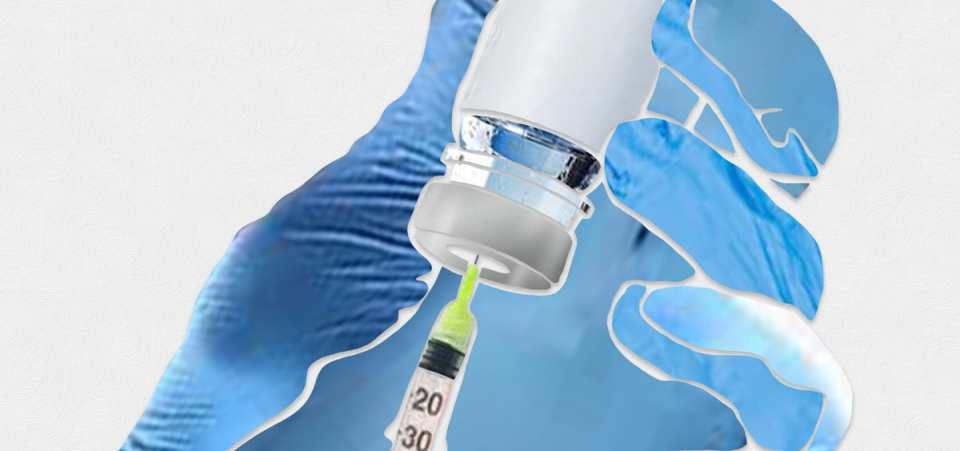Global Health Leaders Launch Decade of Vaccines Collaboration

This is a press release from Bill & Melinda Gates Foundation
The World Health Organization (WHO), UNICEF, the National Institute of Allergy and Infectious Diseases (NIAID) and the Bill & Melinda Gates Foundation have announced a collaboration to increase coordination across the international vaccine community and create a Global Vaccine Action Plan. This plan will build on the successes of current work to achieve key milestones in the discovery, development and delivery of lifesaving vaccines to the most vulnerable populations in the poorest countries over the next decade.
The collaboration follows the January 2010 call by Bill and Melinda Gates for the next ten years to be the Decade of Vaccines. The Global Vaccine Action Plan will enable greater coordination across all stakeholder groups – national governments, multilateral organizations, civil society, the private sector and philanthropic organizations — and will identify critical policy, resource, and other gaps that must be addressed to realize the life-saving potential of vaccines.
The structure of the Decade of Vaccines Collaboration includes a Leadership Council to provide oversight for the planning effort, a Steering Committee that holds the primary responsibility for developing the action plan, an International Advisory Committee to assist the Leadership Council in evaluating the action plan, and a Secretariat for administrative support.
Prof. Pedro Alonso, Director for the Institute for Global Health of Barcelona and Dr. Christopher Elias, President and CEO of PATH, have been appointed co-chairs of the Steering Committee and the Secretariat.
“Vaccines are miracles,” said Prof. Alonso, “For just a few dollars per child, vaccines prevent disease and disability for a lifetime. We must make sure that people understand that vaccines are one of the best investments in health.”
The Leadership Council is comprised of:
Dr. Margaret Chan, Director General of WHO;
Dr. Anthony S. Fauci, Director of NIAID, part of the National Institutes of Health;
Mr. Anthony Lake, Executive Director for UNICEF;
Ms. Joy Phumaphi, Chair of the International Advisory Committee and Executive Secretary, African Leaders Malaria Alliance
Dr. Tachi Yamada, President of Global Health at the Bill & Melinda Gates Foundation;
The Steering Committee includes globally recognized experts in vaccine delivery, advocacy, research and development, and access:
Dr. Nicole Bates, Senior Program Officer, Global Health Policy and Advocacy, Bill & Melinda Gates Foundation
Dr. Seth Berkley, President & CEO, International AIDS Vaccine Initiative (IAVI)
Dr. Zulfiqar Bhutta, Founding Chair, Division of Women and Child Health, Aga Khan University
Dr. Lola Dare, CEO, Center for Health Sciences Training, Research and Development International
Ms. Helen Evans, Acting CEO, GAVI Alliance
Dr. Lee Hall, Chief, Parasitology and International Programs Branch, Division of Microbiology and Infectious Diseases, NIAID
Dr. T. Jacob John, Professor and Head, Departments of Clinical Microbiology and Virology, Christian Medical College, Vellore, India (Retired)
Dr. Orin Levine, Executive Director, International Vaccine Access Center (IVAC)
Dr. Jean-Marie Okwo-Bele, Director, WHO Department of Immunization, Vaccines and Biologicals
Dr. Ciro de Quadros, Executive Vice President, Sabin Vaccine Institute
Dr. David Salisbury, Director of Immunization, UK Department of Health
Dr. Anne Schuchat, Director, National Center for Immunization and Respiratory Diseases, CDC
Dr. Peter A. Singer, Director, McLaughlin-Rotman Centre for Global Health, University of Toronto
Dr. Lucky Slamet, Deputy for Therapeutic Products, Narcotic, Psychotropic and Addictive Substance Control, National Agency of Drug and Food Control, Indonesia
Dr. Gina Tambini, Area Manager, Family and Community Health, PAHO
Dr. Jos Vandelaer, Chief, Immunization, Programme Division, UNICEF
Ms. Sandy Wrobel, CEO and Managing Director, Applied Strategies
The Decade of Vaccines Collaboration expects to complete its work by mid-2012. At that time, all vaccine stakeholder groups will be responsible for implementing the action plan.
“We look forward to working with the global vaccine community to extend the benefits made possible by existing vaccines and new vaccines in development,” said Dr. Elias, “Together we can ensure that all children have a shot at a healthy life.”
WHO is the directing and coordinating authority on international health within the United Nations system. It is responsible for providing leadership on global health matters, shaping the health research agenda, setting norms and standards, articulating evidence-based policy options, providing technical support to countries and monitoring and assessing health trends. For more information, visit www.who.int.
UNICEF is on the ground in over 150 countries and territories to help children survive and thrive, from early childhood through adolescence. The world’s largest provider of vaccines for developing countries, UNICEF supports child health and nutrition, good water and sanitation, quality basic education for all boys and girls, and the protection of children from violence, exploitation, and AIDS. UNICEF is funded entirely by the voluntary contributions of individuals, businesses, foundations and governments. For more information about UNICEF and its work visit www.unicef.org
The National Institute of Allergy and Infectious Diseases (NIAID) conducts and supports research to study the causes of infectious and immune-mediated diseases, and to develop better means of preventing, diagnosing and treating these illnesses. NIAID is part of the National Institutes of Health (NIH), which is a component of the U. S. Department of Health and Human Services and the primary U.S. federal agency for conducting and supporting basic, clinical and translational medical research. For more information about NIAID and NIH visit www.nih.gov.

